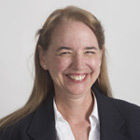Boston, MA
July 12-17, 2015
Conference Website
The Building Learning Communities Conference brings together a diverse ensemble of keynote speakers and attendees to forge new relationships and strengthen existing ties for more meaningful teaching and learning enhanced by technology. BLC provides participants with inspiration and practical skills, and expands professional networks with educators from around the world.
Wednesday, July 15
 Teaching Graph Literacy
Teaching Graph Literacy
1:10–2:15 PM, Cambridge Room, Boston Park Plaza
Graph literacy is the ability to identify important features of a wide variety of graphs and relate those features to the context of the graphs—in other words, to increase your understanding of graphs’ meaning. According to the Common Core State Standards, English and language arts teachers, as well as math and science teachers share the responsibility for teaching students to understand graphs found in books, magazines, and newspapers, and on the web. By using the Graph Literacy activities middle school students investigate equivalent graphs, learn to interpolate values, discover the difference between dependent and independent variables and find linear trends on graphs and use these trends to find corresponding linear equations. This workshop will allow you to try out the graph literacy activities and see how they would fit in your school. Project materials are free and available online or through the Apple App Store.
Teaching Environmental Sustainability
2:35–3:40 PM, Cambridge Room, Boston Park Plaza
Every child lives in a watershed and, thus, is a watershed steward. The Teaching Environmental Sustainability curricula is unique in that it allows students to visualize the impact of human action on his/her watershed using an online modeling application called Model My Watershed. It also permits students to engage in land planning exercises that allow them to immediately see the potential impact of changes on their watershed. By linking processes that act at the local scale to conditions that occur at a larger scale, the Model My Watershed web application lets students link their own observations of nature to scientific models of complex environmental systems. This workshop will allow you to try out the Teaching Environmental Sustainability activities and see how they would fit in your school. Project materials, including the Model My Watershed application, are free and available online.